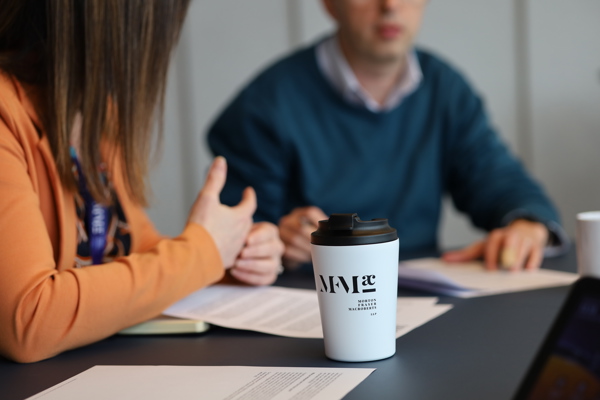You can read the full decision here.
Small claim, big impact
The appeal concerned a difference of only £87.75 in respect of expenses awarded in an undefended simple procedure claim, but was heard by a bench of three appeal sheriffs. In its opinion, the Sheriff Appeal Court made clear that, in normal circumstances, such an appeal would not be entertained; however, given that it raised a number of important questions about the proper approach to expenses in undefended simple procedure claims, they heard the appeal.
As a result of this judgment, claimants in undefended simple procedure claims will now be required to submit an account of expenses to the court when seeking an award of expenses. These accounts will then be assessed by the sheriff clerks and reductions made before an award of expenses is granted.
Whilst the requirement for an account of expenses in undefended claims accords with the relevant rules, it departs from the general practice that has been adopted by courts and practitioners since the introduction of the simple procedure rules. To date, no account of expenses has been required by the courts in undefended claims; instead, a claimant has simply requested expenses when applying for a decision – after the deadline for lodging a response had passed with no response filed. This new judgment changes that approach.
Background
Cabot raised a simple procedure claim against Mr Walls for payment of just over £1,000 in respect of a credit card debt that had been assigned to Cabot by the lender. Mr Walls did not respond to the claim. Cabot sought a decision for decree for the sum sued for, together with expenses.
The expenses sought totalled £386.60:
- £270 in respect of the charge of 15 units for work undertaken, as allowed by Table 1 of Schedule 5 of the Act of Sederunt (Taxation of Judicial Expenses Rules) 2019 (the "2019 Rules");
- £4.60 for the cost of service by recorded delivery post; and
- £112 in respect of the court fee for lodging the Claim Form.
On receiving Cabot's application for a decision, the Sheriff fixed a hearing at which they refused to award the expenses sought and, instead, directed the sheriff clerk to calculate the expenses based on Table 1 of Schedule 5 to the 2019 Rules, but with deductions of 10% and then a further deduction of 25% (of the net 90%) as provided for in rule 3.7 of the 2019 Rules.
The sheriff considered that they were bound by the decision of a single appeal sheriff in Cabot Financial (UK) Limited v Johnstone, but made it clear they disagreed with this decision – instead, they exercised their discretion to calculate the expenses contrary to the approach in Johnstone.
Cabot appealed the decision. Mr Walls did not defend the original claim and was not involved in the appeal, but the Sheriff Appeal Court appointed an amicus curiae (an individual who is not a party to the action but is appointed, by the court, to assist the court by presenting a neutral appraisal of the issues to be decided and by raising considerations that might not otherwise come to the court's attention) to address them on the points of law arising from the appeal.
Sheriff Appeal Court Decision
The Sheriff Appeal Court found that the sheriff had erred in exercising their discretion on the basis that they thought the case of Johnstone was incorrectly decided and that there was no available argument to distinguish Johnstone. As such, the court allowed the appeal but noted that Johnstone was wrongly decided and falls to be overruled. The expenses awarded to Cabot by the Sheriff Appeal Court were £298.85 as had been awarded by the sheriff at first instance, and not the full amount sought by Cabot.
The court specifically addressed the following key questions:
Do the provisions for percentage reductions in rule 3.7 of the 2019 Rules apply to undefended simple procedure claims?
Cabot argued that, in practice, there is no formal assessment of expenses carried out by the sheriff clerk in undefended simple procedure claims so no reductions should be applied to those expenses under rule 3.7. The Sheriff Appeal Court considered that Cabot's approach involved "the wrong end of the telescope" - the 2019 Rules should not be interpreted with regard to current practice, but rather by a relatively straightforward exercise of interpretation.
The Sheriff Appeal Court found that the 2019 Rules clearly envisage that, in both undefended and defended claims, a process of assessment before expenses claimed are allowed and that all charges allowed are subject to the reductions detailed in rule 3.7.
This means that, in accordance with rule 3.7:
- all charges allowed by the sheriff clerk will be reduced by 10%; and
- unless the court directs otherwise, following the 10% deduction, a further deduction will be made of (i) 50% if the claim is for less than £1,000, and (ii) 25% for claims between £1,001 and £2,500.
Are claimants seeking expenses in undefended simple procedure claims obliged to submit to the court an account of expenses which complies with rule 2.1 of the 2019 Rules?
Although it has become common practice that claimants apply for a decision in undefended claims without submitting an account of expenses – relying instead on the sheriff clerk to calculate the sums that may be allowed by reference to other items previously lodged by the claimant, such as confirmations of service – the court considered that the 2019 Rules do require that claimants lodge an account of expenses in undefended claims.
The court noted that a simple account of expenses is a relatively straightforward exercise and could be as simple as filling in the blanks in a pro forma account of expenses. They noted that, to comply with the 2019 Rules, an account would need to confirm: whether postal service was successful; how many attempts were needed; whether service by sheriff officers was required; whether service outside the UK was required; whether any fee exemptions apply; and whether the respondent is to be responsible for VAT.
The court commented that there should be no need for any hearings to determine the level of expenses that should be allowed.
Impact on claimants and practitioners
Claimants will now need to lodge an account of expenses that complies with the 2019 Rules when submitting a request for expenses in an undefended simple procedure claim. This will mark a change from the approach to date, and claimants and those acting on behalf of claimants will need to ensure an account is submitted, failing which their application will be returned by the court.
Such accounts of expenses will be subject to the reductions so, subject to the level of claim, the maximum expenses that can be awarded in an undefended simple procedure claim will be limited to between £121.50 and £182.25 plus outlays.
A pro forma account of expenses for use by party litigants has been published on the Scot Courts website. We expect that similar pro forma accounts of expenses will be produced by practitioners who deal with a number of simple procedure claims for claimants. Although the court does not expect the requirement of an account of expenses to be onerous, it will mean extra steps to be taken by creditors and their solicitors so will undoubtedly have an impact on those raising large numbers of simple procedure actions and, possibly, also the sheriff clerks processing the applications for decisions.
It may be that if the new process does prove to be onerous on claimants, those representing them, and/or the sheriff clerks that a revisal to the Simple Procedure Rules to remove the requirement for an account of expenses in undefended claims may come in the future.


